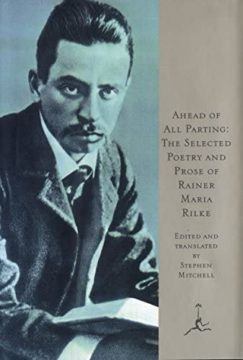by Eric Bies

There I sat (or stood (or, who knows, hovered )), trying to read Osip Mandelstam…
(…not, to be sure, the early Stone poems; not the later Poems poems; not the Egyptian Stamp, not even the essay on Dante, but his final literary effort: cobbled together from the vantage of that characteristically Soviet brand of exile-cum-vacation, about 500 klicks south of Moscow), in this case, the Andrew Davis translation of the Voronezh Notebooks.
As I sat, etc., and perused the table of contents, I noticed that the book contained—in addition to its eighty-nine numbered poems and introduction—an index of first lines.
I remembered the first time I’d noticed such an index. The memory of the encounter was fresh enough—not quite far enough back to not resound so readily with the powerful shame of my nervousness in the company of poems. I remembered how, once, attempting to temper this skittishness, I’d picked out a couple of battered volumes of Auden and Coleridge, friendly clothbound entries into the Everyman’s Library Pocket Poets Series that are with me still. Now as then they remain neat, tidy, approachable: they were, for a reader who’d made the frosty acquaintance of Eliot and Pound, poetry on training wheels. And instrumentally, at the back of them, one could and still can make alphabetical reference to each poem by the words with which it starts. So, too, I remember noticing this then: that that Auden began with “A cloudless night like this” and ended up “Wrapped in a yielding air, beside.”
Later, but not too much later, I took notice (if not any interest in the real utility) of similar indices appended as yet more backmatter to yet other editions of bound selections, collections, and completions of the poetry that continued to unman me.
Then: the Voronezh Notebooks, and as I read—page twenty, eighteenth poem of the first notebook—or attempted to read (with the unfathomable doggedness of the chronically defeated), the contents of its table of contents began to assert a certain pride of place in recent memory, edging into (indeed shimmering brightly at) the limits of my groping cogitations. The specter was not, at first, violent. But gradually, and then inescapably, I found myself overrun by the insane suggestion that I must—must—in a madcap flash of page-flipping, vault ahead to the end of the book.
To this day I cannot reckon the imperative force with which this internal command bore down upon me. I simply could not stay my hand. I needed to pitch myself, headlong and rather head-down, to the bottom of the Notebooks, where I knew that the Index of First Lines (now broad and glossy, clad in brass) had spread its seductive apparatus. But even then my better thinking was slipping and dripping through, running to questions like: Why? I had set out to read some poems, hadn’t I? so I tried to read on, and I did, I read. And my mind moved in loops. How many times can one reread a line like “The extra length of Paganini’s fingers”? But I read, and I tried to read on, and I thought: Who in the hell is Paganini? and sweat gathered in the space between my eyebrows, and I flagged in my reading, and sweat dripped from the tip of my nose like the ink from a well-squished dropper.
So I dropped Paganini’s digits. I made my leaping lunge. What I found astounds me still.
By the operation of chance, providence, Oulipian initiative, or my own mounting paranoia, there on page 105 a set of unknown and unread texts began to disclose their secrets to my unblinking eyes and dropperish schnozz. I was frozen and elated. I felt as though I’d outwitted the front of a smuggler’s bible and glimpsed the handgun pressed inside, and I could not help but to marvel at the ingenuity of its conceit. Neither could I make heads or tails of what was beginning to unfold before me; for, then and there, this Index of First Lines instantaneously morphed into an Index of First Lines. Then, in rapid succession, the title (seen on spine and cover), the copyright page, even the author’s Wikipedia bibliography—each set about its own creaturely mutations. Don’t ask me why but I have always thought of proper nouns as officers in uniform. Well, the bunch of them that moment assumed an aspect at once sinister, conspiratorial, and irresistible.
Reader, I looked down, over, and across that page, and out in plain sight were unaccounted poems, new poems, by Osip Emilyevich Mandelstam. The Index poured them out in pint glasses:
A day reared upon on five heads. For five whole days
A living being is incomparable; don’t compare
All praised, all black, all cosseted and coddled
All the disasters that I see
Alone, I look into the face of the cold
Amid the noise and scurry of the people
Armed with the eyesight of skinny wasps
As a star-stone somewhere whacks the earth awake
I thought: What is a star-stone? and couldn’t say, but it is certain that I had sensed the shock of its whacking. I had awoken to terrestrial applause.
It’s true, I lie in the earth, moving my lips
Let this air be witness
Like a postponed present
Like Rembrandt, that martyr to chiaroscuro
Like wood and copper, Favorski’s flight
Let this air be witness: and it, too, morphed, I watched it change: let this heir be witness.
 Inspired, I remembered my pocketful of Auden…
Inspired, I remembered my pocketful of Auden…
…fever filled my ears with hot blood, and, let’s face it, I probably looked possessed, the sweat still rushing to the tip of my nose (spinning it forth like an instant stalactite), as I grabbed and flipped to the back of that tiny edifice of literary architecture. Was I surprised when I found inside it another poem, until then, too, hidden from the world?
This lunar beauty
Thumping old tunes give a voice to its whereabouts
Time will say nothing but I told you so
To ask the hard question is simple
Underneath an abject willow
Underneath the leaves of life
‘We have brought you,’ they said, ‘a map of the country’
I thought: They brought me the map! and sped on.
 In my copy of the Modern Library edition of Rilke, Selected, whose editors had interspersed titles with first lines, I located three gleaming truths, renegades to the scholastic impulse:
In my copy of the Modern Library edition of Rilke, Selected, whose editors had interspersed titles with first lines, I located three gleaming truths, renegades to the scholastic impulse:
Erect no gravestone for him. Only this:
Evening
Every angel is terrifying. And yet, alas
Everything is far
And:
I am blind, you outsiders. It is a curse
I am, O Anxious One. Don’t you hear my voice
I find you, Lord, in all Things and in all
I have my dead, and I have let them go
I kept myself too open, I forgot
I live my life in widening rings
And (!):
You are lonely, my friend, because you are
You playmates of mine in the scattered parks of the city
You who are close to my heart always
You who never arrived
You, you only, exist
I thought: Everything is far, and I live my life in widening rings, that only I exist.
 I thought: What genius! What genuine repetitious genius! But then—I felt myself turning on my heel. I stood again before the bookcase, and, not knowing where I’d stop, guided at each step by a kind of tuning fork of the fingernails, finally, I seized upon it: Basho: his Complete Haiku in the Kodansha edition. There I found four poems, or four found me (for who knows when one’s, of a sudden, an heir to such cosmic mysteries?). Moreover, who could have guessed that the grandmaster of haiku had marked his greatest poetic achievements so authoritatively outside the genre? Look:
I thought: What genius! What genuine repetitious genius! But then—I felt myself turning on my heel. I stood again before the bookcase, and, not knowing where I’d stop, guided at each step by a kind of tuning fork of the fingernails, finally, I seized upon it: Basho: his Complete Haiku in the Kodansha edition. There I found four poems, or four found me (for who knows when one’s, of a sudden, an heir to such cosmic mysteries?). Moreover, who could have guessed that the grandmaster of haiku had marked his greatest poetic achievements so authoritatively outside the genre? Look:
Buddha’s birthday
Buddha’s death day
building a bridge
buried in moss
And look:
how curious
how enticing
how enviable
how glorious
how harsh
how interesting
how long
how pitiful
how pleasurable
how precious
how rare
how serious
how touching
how very tasteful
human voices
hurry up and bloom
hydrangea
And look:
in a barley field
in a humble cottage
in a stork’s nest
in all directions
in bindweed flowers
in blowing wind
in both hands
in everyone’s mouth
in full bloom
in holiness
in June
in many frosts
in many places
in one house
in summer rain
in the middle of a field
in the night
And see how
people do not see
people growing old
perhaps I’ll be one
picking up rice seedlings
pickled in salt.
